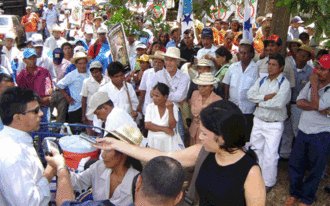Read more about this subject
-
Dossier
Indigenous communities threatened by Barro Blanco dam in Panama
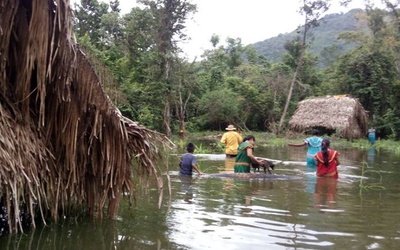
The Barro Blanco dam project in Panama, which has Dutch financial support, is causing indigenous lands to disappear under water. Both ENDS is working to protect the rights of indigenous communities living near the dam.
-
News / 6 April 2017
Barro Blanco floodings: enormous damage
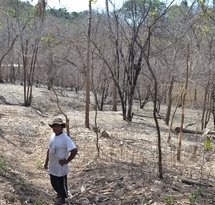
The closing of the Barro Blanco dam last year caused not only material but also cultural damage in the affected Ngäbe-Buglé communities in Panama. So far, funder FMO is not taking responsibility for the human rights abuses caused by the project. So, what now?
-
News / 8 November 2021
Both ENDS and SOMO condemn violence against Indigenous community near the Barro Blanco dam in Panama
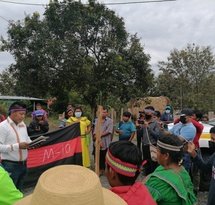
Members of the Indigenous Ngäbe Buglé people were brutally attacked by Panamanian police on Friday 29 October 2021 from a parcel of private land near the FMO-financed Barro Blanco hydroelectric dam. The victims, all members of the anti-dam movement M22, had peacefully occupied the land after their protest camp got dismantled in July this year.
-
News / 27 July 2021
In conversation with the Ngäbe-Bugle community in Panama, after five years of Barro Blanco-dam
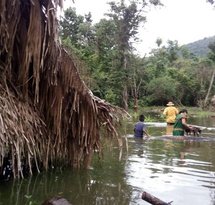
In April 2021, the Dutch development bank FMO announced that it is no longer involved in the Barro Blanco project, a controversial dam in Panama. GENISA, the Panamanian company that built the dam, unexpectedly paid off the multi-million dollar loan early. The question is to what extent, now that the bank is no longer actively financing the project, FMO can still be held responsible for the damage and suffering that was caused when this was still the case.
-
Press release / 5 October 2022
Independent research confirms FMO’s responsibility for destruction caused by Barro Blanco dam, recommends compensation
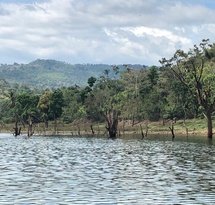
Utrecht, 5 October 2022 - Dutch development bank FMO bears responsibility for the destruction of livelihoods, economic losses and environmental damage caused by the construction of the Barro Blanco dam in Panama, according to a report by the bank's Independent Complaints Mechanism (ICM). Indigenous communities affected by the dam are pleased that their complaints have been confirmed and reiterate their call for apologies and compensation.
-
Dossier
Agua Zarca: indigenous fight against dam costs lives
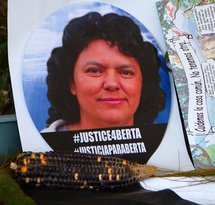
Indigenous Hondurans are resisting the construction of the Agua Zarca hydrodam. Their fight has cost several lives, including that of Berta Cáceres. After considerable public pressure, Dutch development bank FMO withdrew from the project.
-
Dossier
Large-scale infrastructure
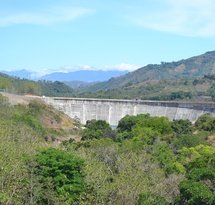
Large-scale infrastructural projects have detrimental effects on local people and the environment, while their benefits are felt elsewhere. Both ENDS is working to ensure that local people have a greater say in decision-making and is investigating the way these projects are funded.
-
News / 23 December 2021
2022 is the year for FMO to make good on its promises and provide financial support only to sustainable development
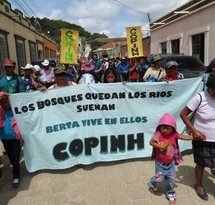
2021 was a turbulent year for Dutch development bank FMO, to say the least. The bank has been under fire for many years for investments linked to human rights violations and suspected corruption. But in the past year, the Dutch press and media have reported on one new development after the other in ongoing cases involving FMO. Below we give a short summary of these cases and call on FMO to make the promised improvements in 2022.
-
Dossier
Advocating for responsible policies of development banks
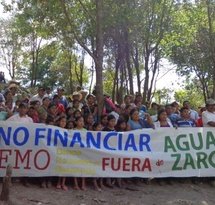
Development banks should comply with strict environmental and human rights rules to ensure that their projects benefit and do not harm the poorest groups. Both ENDS monitors the banks to make sure they do.
-
News / 6 November 2023
Response to FMO investments in Nicaragua
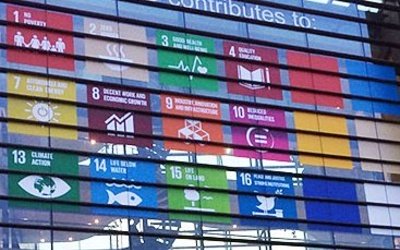
On 27 October, RTL Nieuws reported that the Steungroep Nicaragua considers the millions of euros that the Dutch development bank FMO is investing in Nicaragua irresponsible. When asked, FMO stated that 'it had to continue to support its entrepreneurs in difficult times'. Both ENDS believes that the choice to continue to invest in Nicaragua brings substantial risks, which FMO does not take sufficiently into account when deciding on financing. Previous FMO investments have caused harm to people and the environment and, in some cases, even led to violence – with, as its lowest point, the murder of Berta Cáceres in Honduras in 2016.
-
News / 28 June 2022
In solidarity with daughter of murdered Indigenous leader
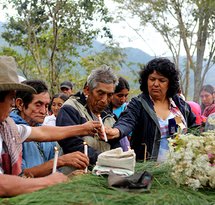
On Tuesday 28 June, the Honduran organisation COPINH and the Global Justice Association filed a complaint with the public prosecutor in the Netherlands against Dutch development bank FMO. For COPINH, this is part of their continued efforts to bring to justice those involved in the murder of their leader Berta Cáceres. FMO financed the Agua Zarca project in Honduras in 2014. The new complaint is based on documents indicating that FMO's money has been used improperly.
-
News / 6 March 2018
Director of electricity company arrested in Berta Cáceres case
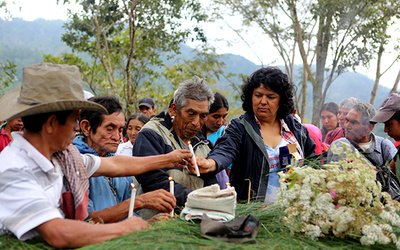
On Friday, March 2, the director of DESA, David Castillo, was arrested in Honduras on suspicion of involvement in the murder of Berta Cáceres, exactly 2 years ago. The Honduran government refused for a long time to not only detect the actual murderers, but also the intellectual authors of the murder of Cáceres.
-
External link / 31 May 2018
Agua Zarca debacle leads to policy changes at FMO (Annual Report 2017)
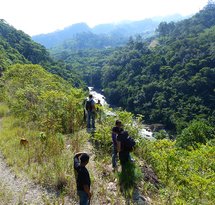
Sometimes things must go terribly wrong before big players start to move. In March 2016, Honduran activist Berta Cáceres was murdered because of her leading role in the protests against the Agua Zarca hydro dam, co-financed by the Dutch FMO. One and a half year later, FMO changed their policies to prevent such events in the future.
-
Press release / 10 February 2021
Transparency at development bank FMO is seriously lacking
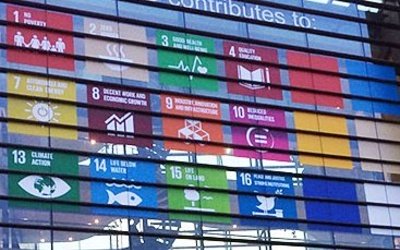
The Dutch development bank FMO is not sufficiently transparent about the projects it finances and is therefore acting contrary to its mandate. This is evident from a new report published by the International Accountability Project (IAP) and the Foundation for the Development of Sustainable Policies (FUNDEPS), endorsed by 28 organizations including Both ENDS, SOMO, and Oxfam Novib. The research assesses FMO's disclosure and access to information practices for investments proposed between January 1, 2019, and May 31, 2020. Only in 25% of the cases was it disclosed what potential negative consequences an investment by FMO would have for people and the environment.
-
News / 6 July 2017
Press Release 6 July 2017: FMO and FinnFund exit the controversial Agua Zarca project
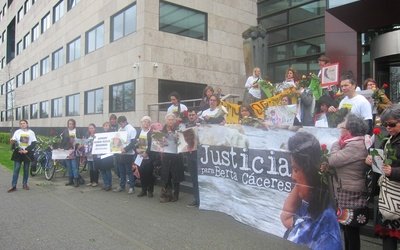
Both ENDS and SOMO welcome the announcement done today by the Dutch and Finnish development banks, FMO and FinnFund, to exit the controversial Agua Zarca hydroelectric project in Honduras. Conflict about the project has led to violence in the region, including the murder of three leaders who opposed the project. In March 2016, renowned human rights defender Berta Caceres was murdered for opposing this project in indigenous Lenca territory.
-
News / 2 March 2017
A letter to Dutch minister one year after Berta Cáceres' murder
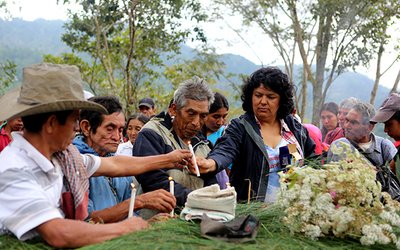
Today, it is exactly one year ago that Berta Cáceres was brutally murdered in her home in Honduras. Cáceres was a globally known human rights defender and coordinator of the indigenous Lenca organisation COPINH. The murder of Berta is closely related to her protest against the Agua Zarca dam, a hydroelectric project financed partially by the Dutch development bank FMO.
-
News / 7 February 2017
COPINH-leader: “Our communities are terrified”
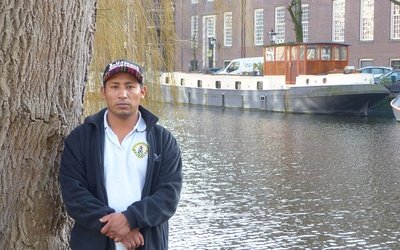
Last week, Global Witness published 'Honduras: the deadliest place to defend the planet'. This shocking report clearly shows the worrying situation of human rights in Honduras and backs the demand of Both ENDS and partner COPINH: FMO must divest from the Agua Zarca dam.
-
News / 13 December 2023
Response from Both ENDS and OxfamNovib to new FMO climate fund
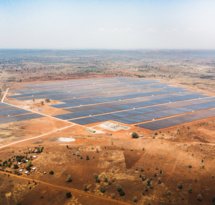
Both ENDS and Oxfam Novib welcome the new SDG Loan Fund launched by FMO. The fund aims to invest more than a billion euros in loans to small and medium-sized enterprises in low- and middle-income countries, in the energy, inclusive financial services and sustainable agriculture sectors. At the same time, both organisations are concerned about the impact of money from the fund on normal people in future recipient countries.
-
News / 10 July 2020
Honduran NGOs call on FMO not to invest in controversial bank
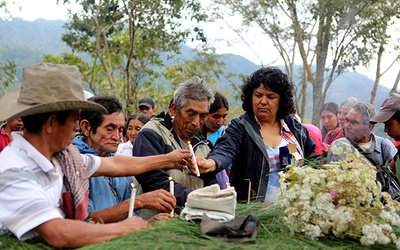
Dutch development bank FMO is considering investing in the controversial Ficohsa bank in Honduras. The bank has close ties with the elite in Honduras, which holds considerable power in politics, the (para)military and the business community. Last Wednesday, a number of Honduran organisations, including the indigenous organisation COPINH – whose leader Berta Cáceres was murdered in 2016 – sent a letter to the FMO management. The letter, signed by forty organisations including Both ENDS, calls on FMO not to do business with this bank.
-
News / 23 July 2021
Dutch development bank FMO's funding for Agua Zarca project possibly linked to malpractices
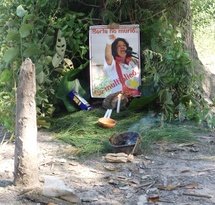
The million-dollar loan that the Dutch development bank FMO provided to project developers of Honduran company DESA for the construction of the controversial Agua Zarca dam project in Honduras, may be related to gross corruption and malpractice. This is concluded in an article published today in the Dutch news paper Financieel Dagblad, based on information provided by COPINH, the indigenous organisation that has been opposing the construction of the dam for years. Several members of the organisation, including its leader Berta Cáceres, were murdered. DESA director David Castillo has recently been convicted of being involved in the assassination of Cáceres in 2016.



